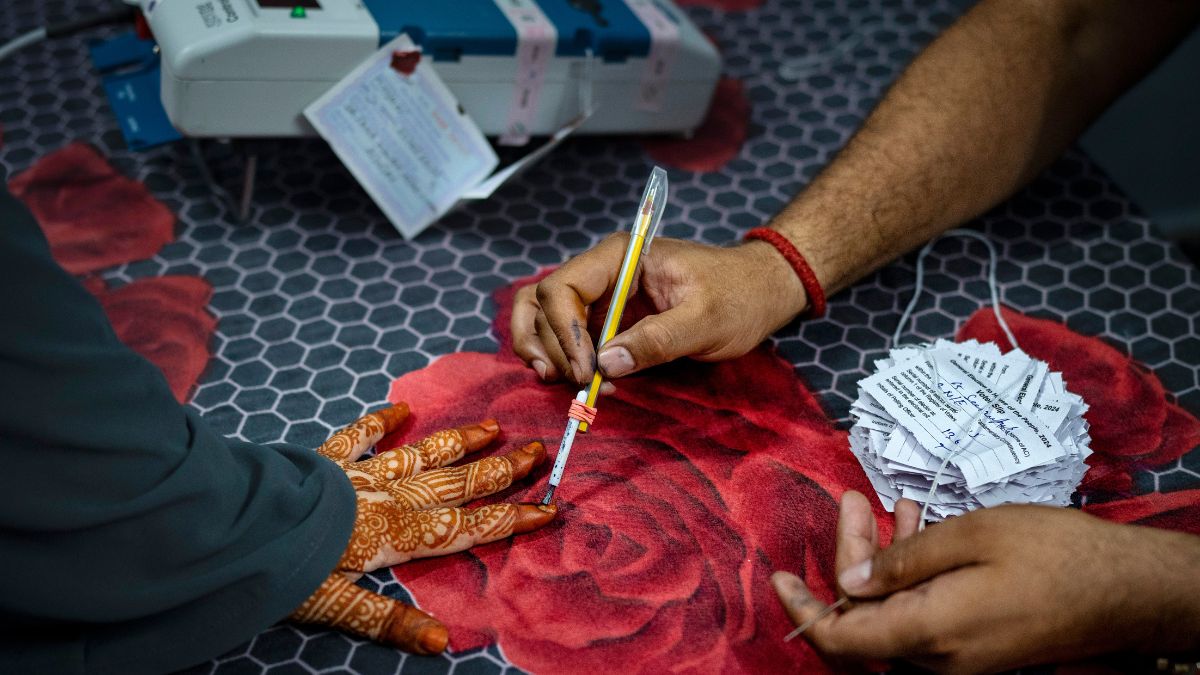Voting for the seventh and final phase of the Lok Sabha polls concluded today.
Now, with the counting of votes scheduled for 4 June, all eyes are on the exit polls.
The exit polls have been released at 6.30 pm.
This is in line with the Section 126A of the Representation of the People’s Act, 1951, which states that exit polls can only be aired half an hour after the completion of the final phase of voting.
But what did they predict in 2014 and 2019? And how accurate are exit polls really?
Let’s take a closer look:
2014
Going into 2014, pollsters were under some pressure.
After all, the exit polls had failed to get it right in back-to-back Lok Sabha elections.
In 2004, the polls predicated that the Atal Bihari Vajpayee-led NDA, which was relying on the ‘India shining’ campaign, would win big.
However, the Congress made a huge comeback in 2004.
In 2009, the exit polls predicted the UPA would get the most seats, but that the result would be a hung Parliament.
The Congress-led coalition defied the odds yet again with the Grand Old Party itself getting 200 seats.
In 2014, all the exit polls favoured the BJP-led NDA under Narendra Modi.
Impact Shorts
More ShortsFor NDA
The News24-Chanakya poll predicted that the NDA would nab 340 seats, while the India Today-Cicero poll gave the coalition 272 seats. The CNN-IBN-CSDS said the alliance would win 280 seats, while the Times Now poll gave the NDA.
The ABP News-Nielsen predicted 274 seats for the NDA, while the NDTV-Hansa Research estimated 279 seats for the NDA.
For UPA
For the UPA, the India Today-Cicero pollster predicted 115 seats, while News 24-Chanakya estimated 101 seats. The CNN-IBN-CSDS gave the alliance 97 seats, while Times Now projected 148 seats.
The ABP News-Nielsen said the UPA would win 97 seats, while NDTV-Hansa Research said the alliance would net 103 seats.
Pollsters seemed to underestimate the hunger for change in the public mind as well as the sheer scale of the NDA’s victory and the UPA’s defeat.
Of all the pollsters, the News24-Chanakya was most on the money.
The NDA would go on to win a massive 336 seats with the BJP itself crossing the half-way mark in Parliament and netting 282 seats.
The UPA, on the other hand, would be reduced to just 60 seats with the Congress winning 44 seats by its lonesome.
2019 polls
In 2019, most pollsters predicted that the Bharatiya Janata Party-led NDA government would return – albeit with a reduced margin.
For NDA
The India Today-Axis pollster predicted that the NDA would win between 339 and 365 seats, while the News 24-Today’s Chanakya gave the alliance 350 seats.
The News18-IPSOS poll said the NDA would net 336 seats, while Times Now-VMR predicted 306 seats for the NDA.
The India TV-CNX pollster estimated 300 seats for the alliance, while the Sudarshan News poll gave the NDA 305 seats.
For UPA
Meanwhile, for the UPA, the India Today-Axi poll predicted between 77 and 108 seats, while the News 24-Today’s Chanakya estimated 95 seats.
The News18-IPSOS poll said the UPA would win 82 seats, while the Times Now-VMR poll gave the alliance 132 seats.
The India TV-CNX predicted 120 seats for the UPA, while Sudarshan News estimated the alliance would net 124 seats.
The India Today-Axis gave the UPA between 77 and 108 seats, while News 24-Today’s Chanakya predicted 95 seats.
Most of the pollsters yet again failed to gauge the popularity of the BJP-led NDA.
The NDA, incredibly, ended up bettering its 2014 tally in a resounding vote of confidence in Prime Minister Narendra Modi.
The alliance won 352 seats with the BJP itself winning 303 seats.
Meanwhile, the Congress-led UPA expanded its tally to 91 seats with the grand old party winning 52 seats – but it was nothing to write home about.
The News 24-Today’s Chanakya was yet again the most accurate pollster.
Are exit polls accurate?
Not necessarily.
As noted above, pollsters have been off the mark with remarkable frequency in at least four recent Lok Sabha elections including 2004 and 2009.
Exit polls are also often condemned for being biased, relying on skewed data or improper sample size, and being sponsored or politically motivated, Business Standard.
The Economic Times quoted TK Arun as saying, “Exit polls are tricky in India. Indians are prudent people. Why would they tell a pollster anything other than what they figure out the pollster wants to hear? Suppose he voted Congress, and says so to the pollster, the BJP wins the election and extracts from pollsters details of all those who said they voted Congress, what mayhem might not follow? Why take the risk? Indians can be rational when the issue at stake is lack of faith as well.”
In short, exit polls can be hazardous to a political junkie’s health.
With inputs from agencies
)